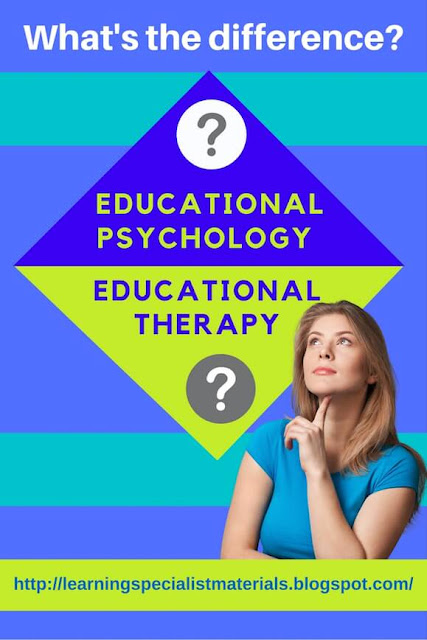This week I wanted to tell you about my online store, Good Sensory Learning. I’m Dr. Erica Warren, and I established this site so I could share all the materials that I have created over the last 20+ years as a learning specialist and educational therapist. When I first began my private practice, Learning to Learn, I had great difficulty finding fun and multisensory materials for my students that were effective and engaging. So back in 2005, I made it my mission to design and distribute high-end, remedial products as well as memorable, motivating lessons that bring delight to learning. If you would like to try a free sampling of my activities , CLICK HERE . How Are the Products Organized at Good Sensory Learning? You can download my Free Printable Catalog or you can browse the site using the grey “search all products” bar in the top right of any page with keywords such as dyslexia, working memory, and executive functioning. What’s more, drop down menus in the red banner allow you t...
What is Educational Psychology?
Educational psychology is an established branch of psychology that can be traced back to the early 1900s, and many formal institutions of higher education offer advanced degrees in this field of study. educational psychologists study human learning and motivation, and they investigate the
- cognition of the brain
- influence of affect, goals, and interest on learning
- role of assessment in learning
- psychology of teaching
- effectiveness of instructional intervention
- relationship between cognition and technology
- social psychology of learning organizations
- methods for conducting educational research
What Does an Educational Psychologist Do?
Many educational psychologists conduct educational research and studies on current and educational practices, while others may try to develop new and improved teaching techniques, testing methods, learning methods and educational programs. Some example resources an educational psychologist might author include worksheets, lesson plans, tests, textbooks, and instructional videos.
Many educational psychologists have specialties. They may concentrate on a specific age group ranging from elementary to adult learners. It is also common for an educational psychologist to focus on a particular type of learning problem or disability, such as dysgraphia or dyslexia.
What is Educational Therapy?
Educational therapy is new term, and this is why there are few if any formal educational programs actively using this method. The term learning specialist has been around for a longer period of time and the two approaches are virtually the same. Educational therapy is a form of remedial treatment used to help individuals with learning differences, disabilities, and challenges. These professionals are versed in helping students with social and emotional challenges surrounding their learning difficulties. These interventions are individualized and unique to the specific learner. Most educational therapists combine degrees in both education and psychology. Training methods are also available through online courses of study.
What Does and Educational Therapist Do?
An educational therapist combines educational and therapeutic approaches for evaluation, remediation, case management, and advocacy on behalf of children, adolescents, and adults with learning disabilities or learning problems.
Final Thought:
I am an educational therapist and I feel that my Master’s degree in educational psychology was an integral piece of my training. However, I also have another six years of doctoral study in a combination of school psychology, special education and adult education. These, too, were significantly relevant, but two other extremely important aspects of my training were my BA in fine arts (what I like to refer to as my secret weapon) and a three-year assistantship where I conducted psycho-educational testing and wrote comprehensive neuropsychological assessments. So although direct training is educational therapy methods is limited, there are many pathways that can lead to the knowledge needed to be an educational therapist.
If you would like to learn the distinction between an educational therapist, learning specialist and a tutor: http://learningspecialistmaterials.blogspot.com/2016/01/tutor-learning-specialist-and.html
Would you Like to Learn Tricks and Strategies for a Successful Educational Therapy Business?
I offer a number of courses, and I also offer many educational products for multisensory and remedial instruction as well as cognitive remedial therapy. You can learn about all these resources at Good Sensory Learning and Dyslexia Materials.
Cheers, Dr. Erica Warren
Dr. Erica Warren is the author, illustrator, and publisher of multisensory educational materials at Good Sensory Learning and Dyslexia Materials. She is also the director of Learning to Learn and Learning Specialist Courses.
· Blog: https://learningspecialistmaterials.blogspot.com/
· YouTube Channel: https://www.youtube.com/user/warrenerica1
· Podcast: https://godyslexia.com/
· Store: http://www.Goodsensorylearning.com/ & www.dyslexiamaterials.com
· Courses: http://www.learningspecialistcourses.com/
· Newsletter Sign-up: https://app.convertkit.com/landing_pages/69400
· Blog: https://learningspecialistmaterials.blogspot.com/
· YouTube Channel: https://www.youtube.com/user/warrenerica1
· Podcast: https://godyslexia.com/
· Store: http://www.Goodsensorylearning.com/ & www.dyslexiamaterials.com
· Courses: http://www.learningspecialistcourses.com/
· Newsletter Sign-up: https://app.convertkit.com/landing_pages/69400


Comments
Post a Comment